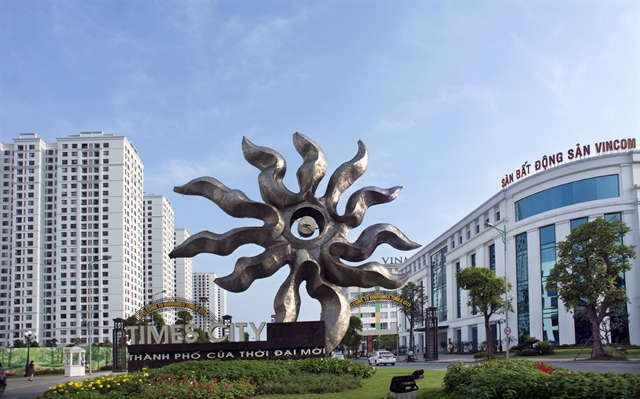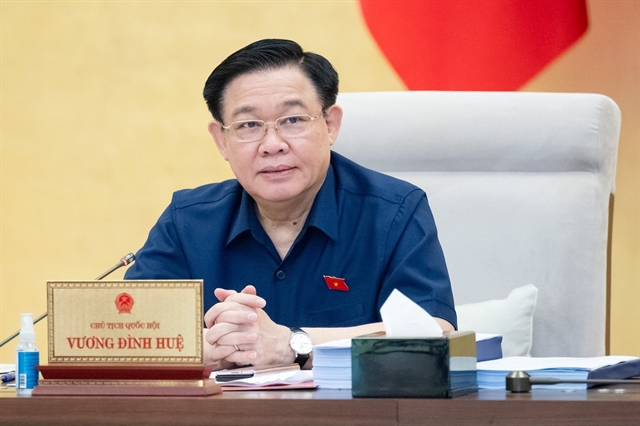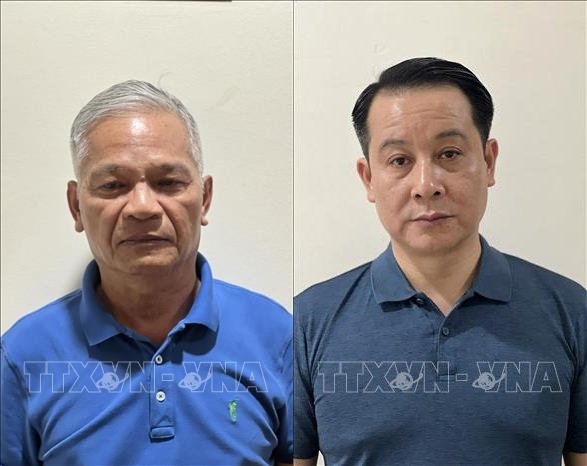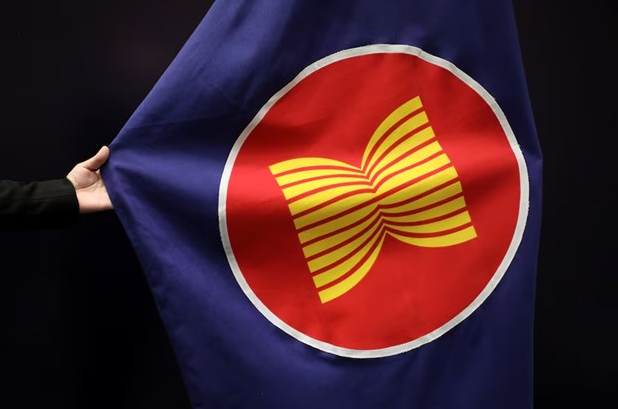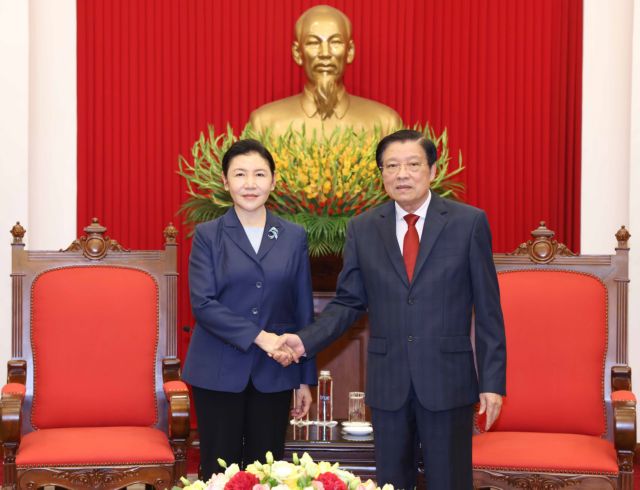 Life & Style
Life & Style
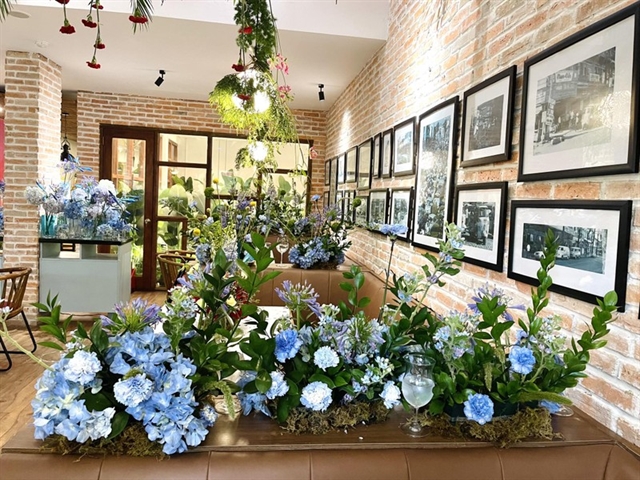
Trung Kiên sadly passed away in Hà Nội on Wednesday at the age of 82 due to kidney failure but leaves a legacy that will never be forgotten.

|
| LEGEND: Trung Kiên presented his granddaughter Thiện Thanh in a TV programme in 2014, where the duo sang Tự Nguyện (Volunteering). File Photo |
HÀ NỘI — "If I were a bird, I would be a white dove (the symbol of peace), as I am a man, I would die for my homeland," go the lyrics of Tự Nguyện, and they probably say it all about the life and career of the late Nguyễn Trung Kiên.
The patriotic song, written by Trương Quốc Khánh, was one of many Trung Kiên sang in his youthful days before growing up to be one of the Việt Nam's greatest artists.
Trung Kiên sadly passed away in Hà Nội on Wednesday at the age of 82 due to kidney failure but leaves a legacy that will never be forgotten.
The artiste
Born in the Year of the Tiger, 1938, at 16, the young Trung Kiên passed the test to study at the then Hà Nội Music School, today's Hà Nội Academy of Music. From 1958 to 1961, he studied with visiting Russian professors in Hà Nội, who discovered his talent with his voice as a tenor.
In 1962, he was among the young talented youths who got to study at the then National Conservatory of Music named P.I. Tchaikovsky in Kiev in what was then the Soviet Union.
Trained at the Kiev Conservatory, a top performing arts centre in the Soviet Union, the young Trung Kiên's voice was broadened, heightened and tempered so in 1968, he won a gold medal at the World Youth and Students Festival in Bulgaria.
He graduated with distinction in 1970, and he returned to Việt Nam, when his country was still at war. He was the principal solist of the National Opera and Ballet Theatre.
When he sang patriotic songs, namely, Gặp nhau trên đỉnh Trường Sơn (Rendez-vous on top of Trường Sơn Mountain), Chào Sông Mã anh hùng (Salute the heroic Mã River) and Đất nước trọn niềm vui (The Country United in Joy), with marching rhythms and poetic lyrics became engraved in the hearts of not only the soldiers on the frontline he sang for, but also the wider public, who would listened to his voice over the radio.
But his repertoires were not merely joyful marching songs, other romantic ballads also left a lasting impacts in the memory of many radio listeners, and Tinh Ca (Ballad about Love) by Hoàng Việt was one of his best songs.
"His voice was a bright, energetic yet strongly emotional tenor, which flourished all along the long quest to reunification of our country Việt Nam," writer Châu La Việt wrote about him.
Trained by world-class professors in Europe, he used the techniques he had learned to breathe in the Vietnamese songs with a wider, further space, which moved listeners to the depth of their hearts.
"His voice range can get up to the H in the tenor range, which many tenors can do. But he's the only one who can make the sound at the perfect pitch, closes sharp and a powerful resonance all happen at once," explained his former student Đào Nguyên Vũ, also a tenor.
The pedagogue
He started teaching at the Voice Department of Hà Nội Music Conservatory in 1972 and was its Dean from 1978 until 1987. In 1994 he was awarded the title "Artiste Emeritus" and in 2001 he became a "People's Artist", an honour bestowed by the president.
He published many papers on voice training and teaching methods for voice coaching. He also authored many books on the techniques of singing and voice training. His syllabus included the voice history and styles of the world, which are available online now, but back then, textbooks and archives were very helpful for voice coaches and students.
Some of today's top singers are proud to say they were his students, like Nguyễn Quốc Hưng, People's Artist, Dean of Voice Department at Viêt Nam Academy of Music, top sopranos Lan Anh and Anh Thơ.
He also spent a large amount of his career as a government employee. From 1987 until 2006, he worked as Head of Performing Arts Department, Deputy Minister of Culture and was later a senior advisor of the ministry.
He was awarded Labour Order, Second Class, and Independence Order, Third Class.
Fluent in Russian, he translated hundreds of Russian pop and traditional songs into Vietnamese, some of which became smash hits.
During his long and diverse career that spanned performing, teaching and directing cultural activities, he always tried to raise the expertise of singers up to international standards and recognition, meanwhile maintaining their Vietnamese identity.
The Arts of Operatic Singing was the voice student's must-have book that he authored.
The maestro
People's Artist Trung Kiên was also director of many grand performances and festivals, including Huế Festival in 2000, 2002 and 2004.
He was Artistic Director of 'Salute 2000' in Hà Nội, directed the 'Our Country' programme in 2005 and a commemorate series of activities for Verdi's 100th anniversary.
In a series for Mozart's 250th anniversary in 2006, he was artistic director of the Vietnamese team in a joint production of Mozart's The Magic Flute with Austrian director Wolfgang Groehs.
His recordings of patriotic and revolutionary songs can be easily found on YouTube. His rare recording of Russian songs can be found on nhacuatui.com. His interpretation of Homeland and Nightingales was unrivalled among Vietnamese singers.
The legacy
He led a long life serving his country, from marching with soldiers to the frontline in Quảng Bình Province.
On April 30, 1975, he was in Sài Gòn, from where he sang Gửi nắng cho em, (Sending You Sunshine, Dear) by composer Phạm Tuyên and broadcasted on Voice of Việt Nam Radio to millions of listeners in the north.
This was also the last song he sang in public in 2019. The song was the gift of his life, his voice and his love to those he left behind.
Maestro Trung Kiên is survived by his wife, pianist Trần Thu Bạch Hà and his son Quốc Trung, who he fathered with his first spouse, the late Thanh Nga, who was a soprano.
Two of his grown grandchildren have also followed artistic paths: one a voice coach and the other a pianist. VNS

